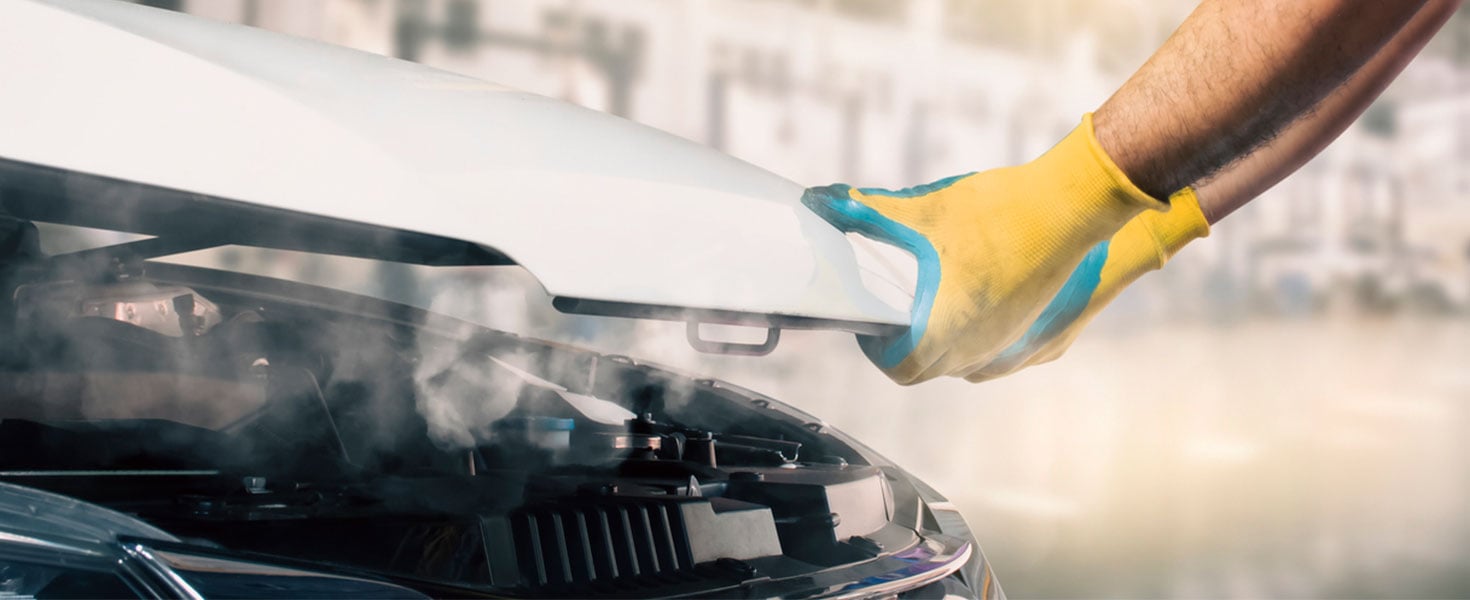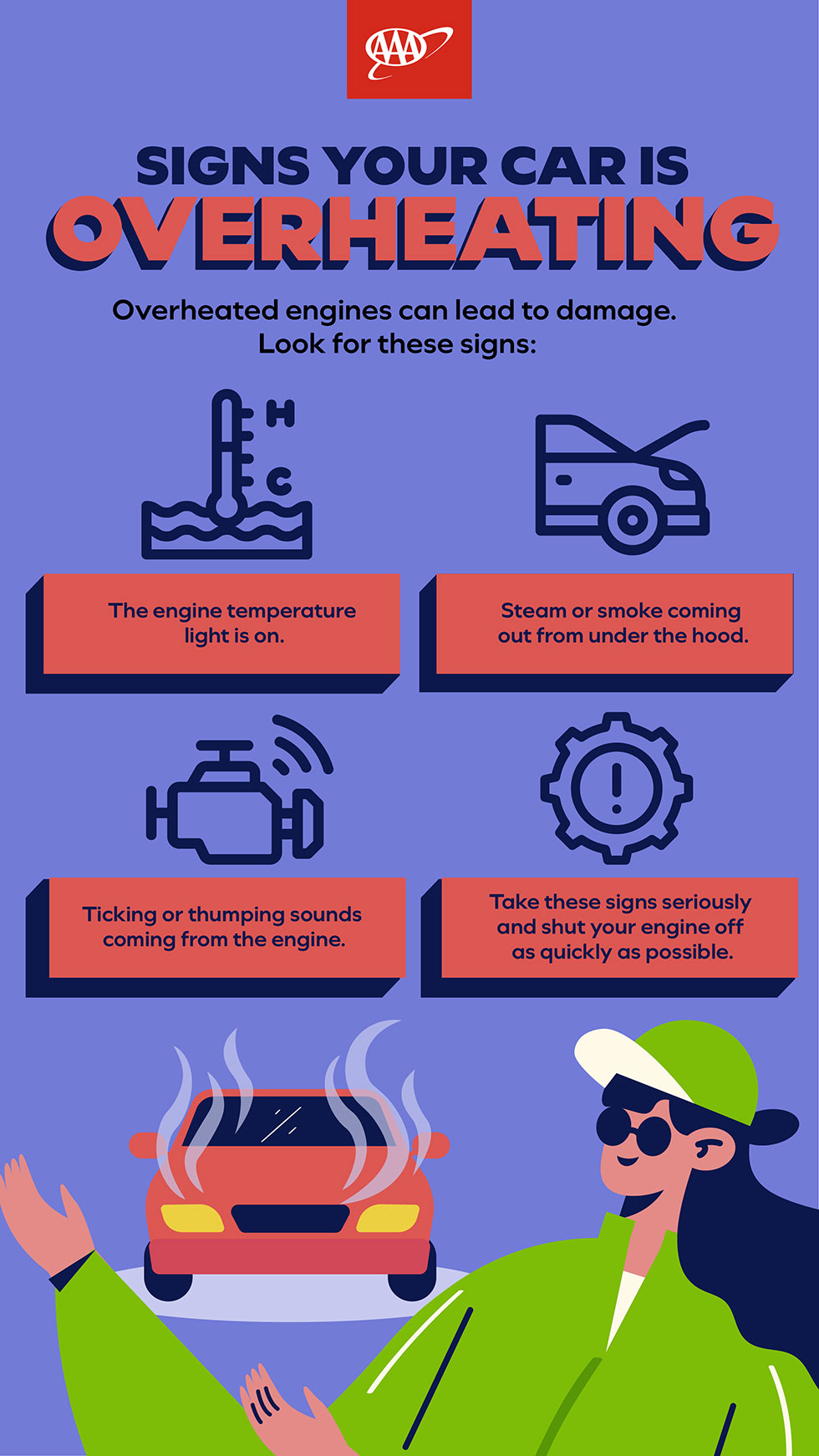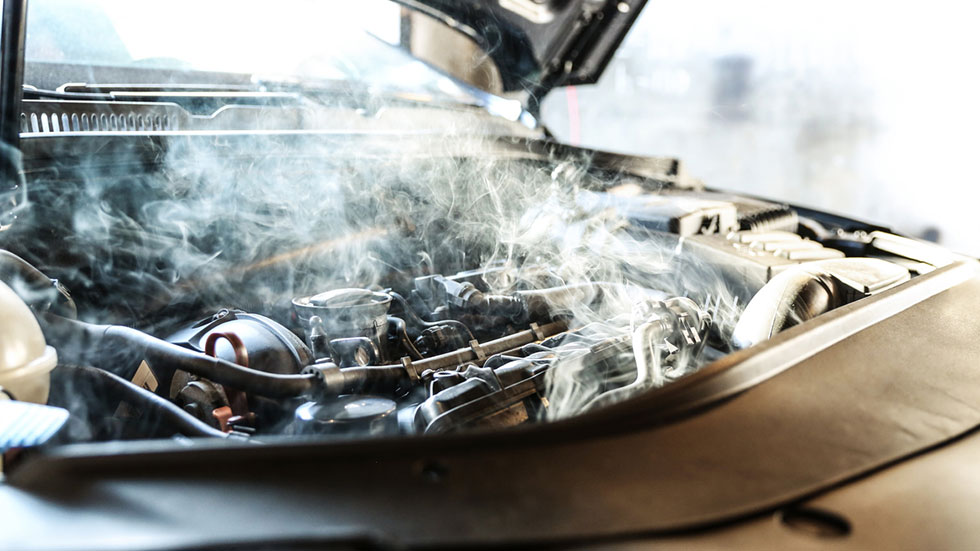Why Is My Car Overheating?
4 signs & fixes for your engine overheating—coolant issues, faulty thermostat, and more



No component is more critical to the operation of your vehicle than your engine. The heart of everything your vehicle does, your engine burns fuel and generates friction, creating immense levels of heat as it operates. Powering you down the road, charging the battery, and keeping all your on-board electronics functioning mile after mile is hard, hot work. Everything from your motor oil to your radiator and coolant system work in tandem to keep your engine from overheating.
Every engine has an optimal operating temperature—one at which it burns fuel most efficiently and delivers the most power per unit of fuel that it’s burning. So, when the engine begins to overheat, you should never ignore it. An overheating engine is always serious and continuing to operate an overheating motor can cause catastrophic damage.
In this article, we’ll learn more about some signs that your engine may be overheating and what you can do to fix it. If your engine temperature light comes on or you suspect that your engine is overheating, pull over as soon as it’s safe to do so and turn your vehicle off completely to allow it to cool.

WHY IS MY CAR OVERHEATING?
When your engine overheats, there will be plenty of signs. In each case, you should try to shut it off as quickly as possible and allow it to cool before doing damage that may be irreparable.
Engine Temperature Light is On – While this light may come on for reasons unrelated to your engine overheating, you should always treat it as a sign that your engine needs immediate attention from a professional. Continuing to operate your vehicle while your engine temperature light is on could break down your engine gaskets, warp or crack your engine, or cause delicate components like your intake valves to break or bend.
Steam or Smoke Coming from Under Hood – Faulty coolant systems are a big culprit when it comes to overheating engines. If you see steam or smoke coming from under your hood, your coolant system could be the reason why. A faulty thermostat, broken water pump, debris in the radiator, and coolant leaks can all cause an engine to overheat and generate steam.
If you’ve seen steam or smoke coming from under your hood, always exercise caution when checking under the hood. Not only are systems like your radiator extremely hot, but the liquid left inside is under pressure and could be boiling hot. Never remove a radiator cap to check until everything has been given a chance to cool down (usually 40 – 60 minutes), otherwise you risk spraying boiling hot liquid that could injure you.
Ticking Sounds – If you notice ticking sounds coming from the engine while your vehicle is running, this can be an indicator that your motor oil isn’t lubricating everything properly and some parts are beginning to touch, creating additional friction. Not only is this wearing down the delicate metal components that are colliding, but motor oil is critical to keeping your engine cool. If it’s not protecting parts from touching, then it won’t properly cool your motor either.
Thumping Sounds – The coolant system in your vehicle uses a pump and a thermostat to deliver fluids to your engine. A properly working thermostat opens once the engine reaches a certain temperature, since cold engines don’t run as efficiently. A malfunctioning thermostat can restrict the flow of coolant, leading to superheated fluid meeting with cooler fluid inside the system that results in loud thumping noises.

Although it’s always a good idea to know some signs of a car overheating, savvy vehicle owners will quickly be able to tell when there’s something wrong with their motor. Engine cooling issues should never be taken lightly and should always be addressed as quickly as possible. If you continue to operate an engine that’s overheating or showing signs of undue stress, it can cause damage that no professional can repair.
